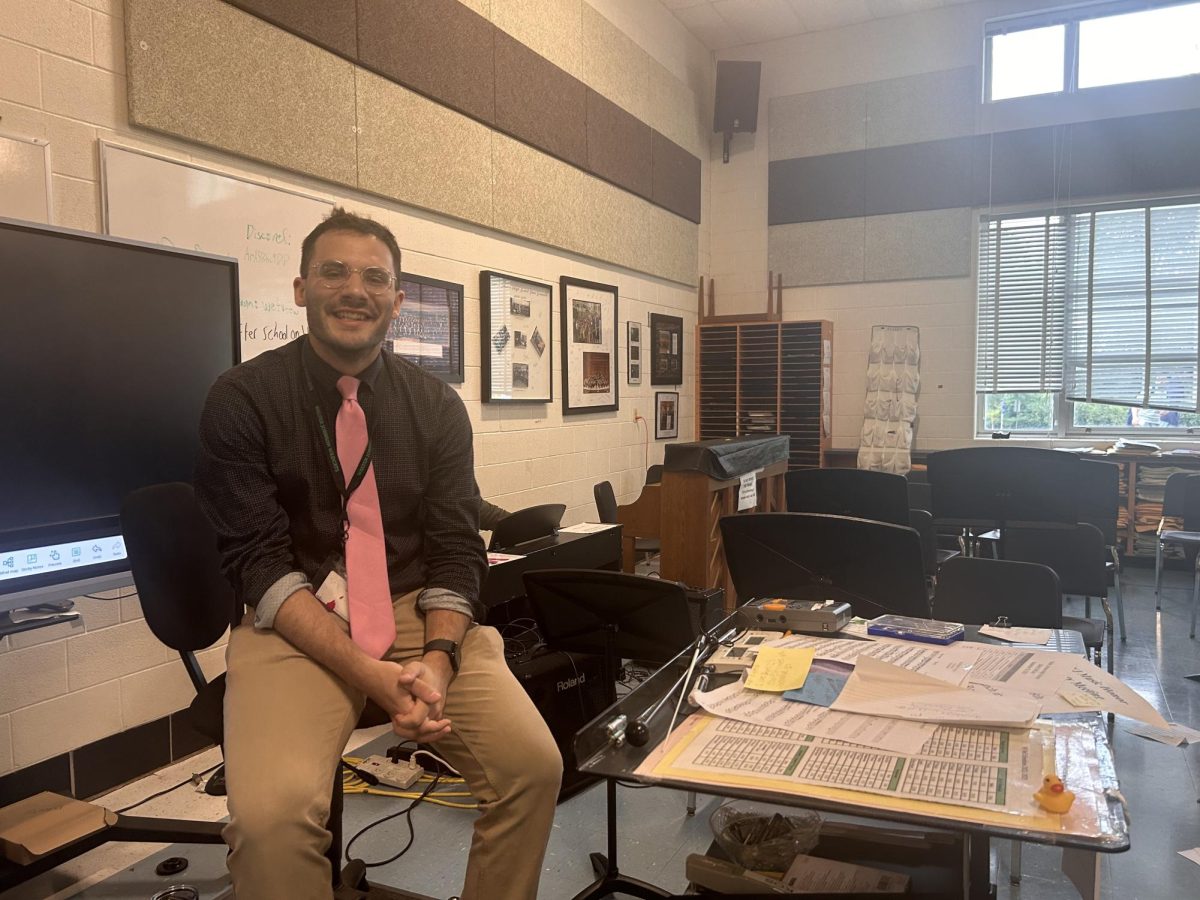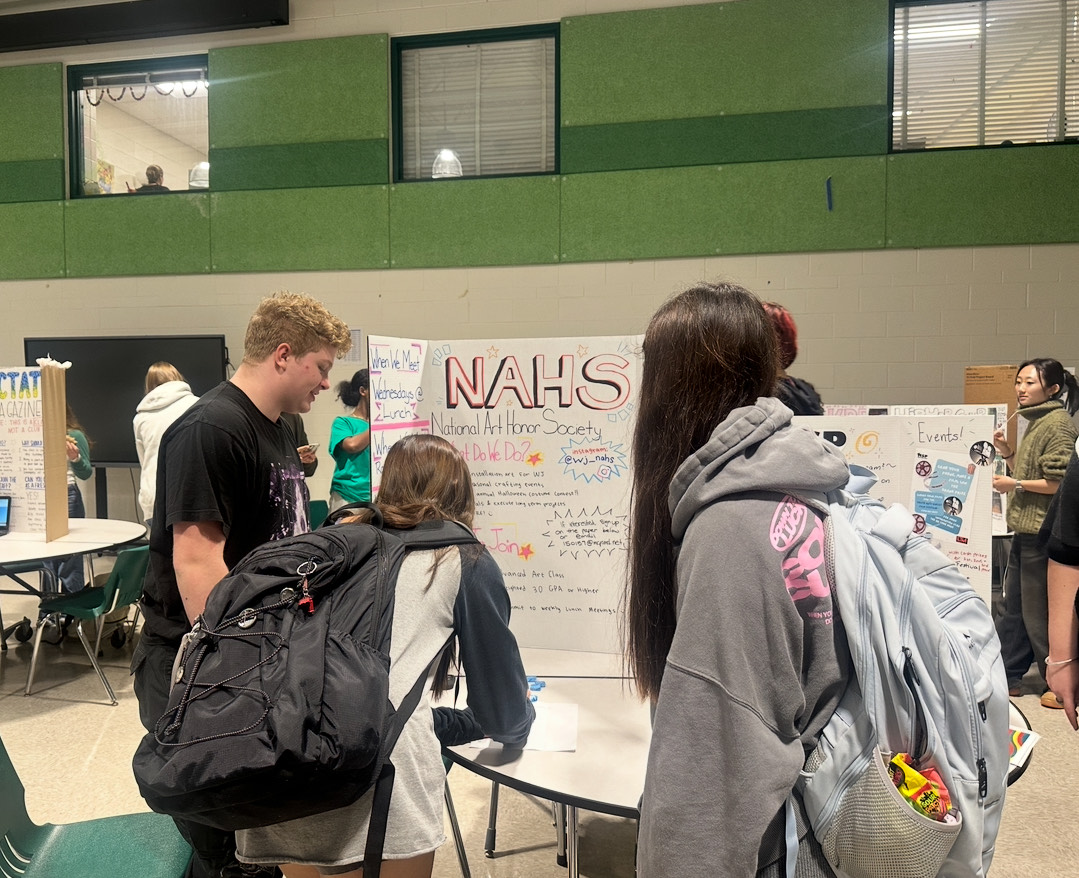Barbenheimer
What makes these two films such a package? Being released on the same day? Their acclaimed writers, directors and actors? Maybe because they’re polar opposites? This all contributes to the fear of missing out on this sensational cinematic event.
However, what the film industry shouldn’t take away from this is that extreme marketing will create for a bigger profit, even though it usually will. They should take away from “Barbie” that movies made by and about women are both needed and wanted, but not done enough. And in the case of “Oppenheimer,” the risk of an alternative and unlikely biopic actually did pay off. In the future, similar uncommon plots can be tolerated and not seen as just a potential loss of profit.
Writers and directors Greta Gerwig and Christopher Nolan are now further thrust to the very top of the film industry and their future projects will be extremely sought after. But do they live up to the hype and possibly go on to become rewatchable classics? Join me on my attempt to unpack these films.
Barbie
“You guys aren’t doing patriarchy very well,” Ken.
Throughout “Barbie,” we see two distinct societies evolve, both of which are blatantly stereotypical and extreme. We also see two other societies that seem tamer to us as viewers. The quote above, from a businessman character, is paralleled within the film, as hidden details are scattered throughout the movie to portray the themes it wants to show. I’m talking about the sequence where Barbie, played by Margot Robbie, and Ken, played by Ryan Gosling, first experience the real world. We see Barbie getting catcalled on the street, men fist bumping with testosterone flowing like a river, and businessmen shushing away women in their towering macho buildings.
Ken is enamored with the real world, and brings his version of it into Barbieland, thus only taking the extremes, causing “Kenland” to be a polar opposite of what Barbieland used to be. A land where men have all the power, stereotypical “bro” things are happening every second, and the women are brainwashed into being their long-term, long-distance, low-commitment, casual girlfriends.
What “Barbie” strives to create, is an idea where power dynamics are brought to the extreme, to highlight the absurdities of our world. By the end of the movie, both the Barbies and the Kens realize that neither of their idealized societies were perfect. The society they ended up with was much more fair to both men and women. But just as in reality, there is inequality, and the Barbies retained a power difference equal to what men have in the real world.
One thing I didn’t expect was how human the movie felt. “Barbie” gives an important message: you don’t need to be extraordinary to be human. Barbie, played by Margot Robbie, undergoes an important change at the end by understanding this. The founder of Mattel, Ruth Handler, played by Rhea Pearlman, is also here, and gives the existential advice, “Humans have one ending. Ideas live forever.” Barbie then realizes that she doesn’t want to be the idea, she wants to be the one who creates something meaningful. Barbie becomes the “Ordinary Barbie” that represents most of humanity. Living life just to live life, experiencing both joy and pain; it’s all a part of being human.
Oppenheimer
After spending more than nine hours in the theater with three viewings, I believe I have cracked “Oppenhiemer.” The first (and most obvious) thing you need to know about the three-hour-long movie is that it centers on the life and conflicts of physicist J. Robert Oppenheimer, played by Cillian Murphy. The atomic bomb may be an attention grabber and central conflict, but more importantly, it serves as a plotpoint for the evolution of Oppenheimer’s character and the society he lived in.
Oppenheimer persuades scientists across America to join the Manhattan Project with the argument, “I don’t know if we can be trusted with such a weapon. But I know the Nazis can’t.”
“They need us,” Oppenheimer tells a physicist who replies, “Until they don’t.”
After a little more than halfway in the movie, the extremely tense Trinity bomb test sequence occurs. This sequence is one of my favorite parts of the movie, with the string music from composer Ludwig Göransson constantly keeping the audience on edge as the bomb explodes cinematically. Following this, the plot keeps throwing punches and does not slow down. The bomb is shown to work and the power is now taken from the physicists. President Harry Truman approves the bombing of Hiroshima and Nagasaki, and thus, the U.S. government is done with Oppenheimer.
What follows is a sequence designed to leave the audience with a haunting question: was the use of the bomb necessary? Oppenheimer sits in some type of information briefing where reels of photos document the destruction of the bomb. We never see the photos, and it’s a brief scene that ends with Oppenheimer not being able to bring himself to look at the photos of Japanese bomb victims.
The most haunting moment that I prepared for on my second and third viewing was when Oppenheimer had to address the crowd of people cheering him on for being a major component of the creation of a genocidal weapon. He appeals to this hungry crowd, “I bet Japan didn’t like it,” and “I just wish we had time to use it on the Germans.” Then with a single piercing shriek from an unseen victim in Oppenheimer’s head, the audio goes quiet and muffled.
A movie undertaking this moral question will undoubtedly be controversial. And what “Oppenheimer” achieves is the fact that there is no answer that will be agreed upon, and there never will be. There are plenty of “what if’s?” and arguments about the right thing to do for humanity. Coming away from Oppenheimer, Americans in the audience especially will feel that question lingering.
Oppenheimer is an excellent historical drama and biopic that actually has a lot to say about the dangers of nuclear weapons, the moral dilemma of using the bomb in WWII, and when loyalty gets called into question. If you have already formed opinions on the movie without seeing it, just remember, “theory will only take you so far.”









